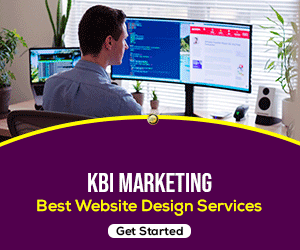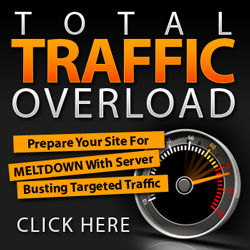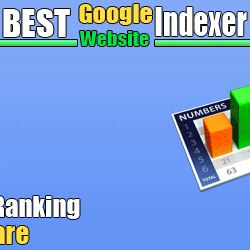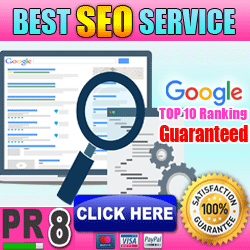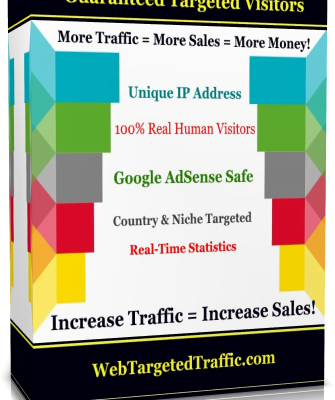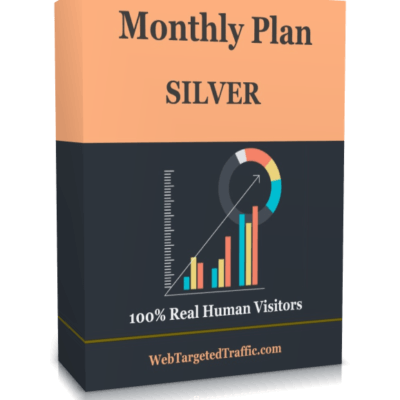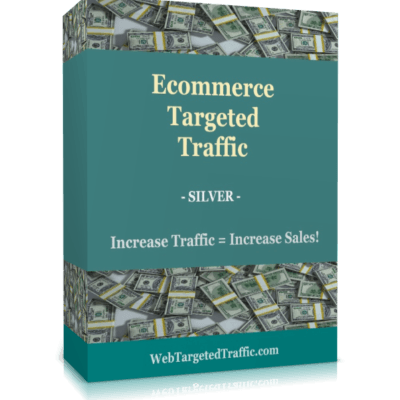Table of Contents
The Advantages and Disadvantages of Search Engine Optimization (SEO)
SEO or, Search Engine Optimization, can be a double-edged sword. Although there are plenty of advantages to implementing a SEO campaign, there are also some disadvantages to think about. Keep in mind that proper search engine optimization is a bit complicated and if you are considering putting this strategy into effect you should have a general understanding of how it all works.
While you’ve heard that SEO, or Search Engine Optimization, is a useful and necessary digital marketing tool, you may not be exactly sure what SEO entails in this day and age. This guide breaks down what SEO is, why it’s important, and how to implement best practices so that your brand is more discoverable than ever online.
What is SEO?
SEO is the practice of increasing the quantity and quality of traffic to your website through organic search engine results. A higher ranking when someone searches a term in your industry increases your brand’s visibility online. This, in turn, gives you more opportunities to convert qualified prospects into customers. When done correctly, SEO can help your brand stand above others as a trustworthy company and further improve the user’s experience with your brand and website.
Why is SEO Important?
Visibility and Rankings
When searching for a service or product online, users are more likely to choose one of the top five suggestions that the search engine shows them. SEO helps you rank higher in search results and garner more visibility online, making potential customers more likely to click over to your site and convert.
Web Traffic
To put it simply – if potential customers can’t find your website, sales opportunities are being missed. SEO increases your organic search engine traffic, in turn increasing the number of visitors your page sees each day. This directly correlates to an increase in sales – because the more relevant people that see your site, the more likely you are to sell to them.
Trustworthy
The better your SEO score is, the higher you’ll appear on search engines like Google and Bing. While ranking higher on Google is appealing to all brands because on increased visibility, a secondhand benefit is the trust you gain with potential customers. Users tend to defer to the recommendations that a search engine generates, so having a higher position for the keywords a user is searching for will, in turn, solidify your product or service as trustworthy in the user’s mind.
User Experience
A well-optimized website clearly communicates what product or service is being offered, how to obtain it and answers any questions surrounding it. By catering the site build to the user’s experience, search engines like Google and Bing are able to easily pull the information they need to then relay to users. If a user struggles to navigate your site, chances are that search engines do as well.
Growth
There’s no doubt about it – SEO is key to the growth of your brand. As we mentioned above, the higher you rank on a search engine for a variety of high-volume keywords, the more organic (aka non-paid) web traffic your site will receive. It’s as simple as that.
A website that is well-optimized is more likely to gain more customers and make more sales. People are also more likely to then share your brand across other social platforms like Facebook or Instagram once they’ve found your website through a search engine.
What Are the Main Elements of Search Engine Optimization?
On-site SEO
On-site SEO are the improvements to be applied to the content on your site to ensure that it’s search engine friendly. When optimizing your webpages for search engines, you want to signal to search engines exactly what the webpage is about in a variety of ways.
With On-site SEO, you’ll deal with the structure of your website, SEO keywords, internal links, image alt attributes, and other techniques to help the search engines analyze and assess the content of your website.
Keywords
While keywords are no longer the only SEO technique that matters, they’re still crucial to your website’s search engine ranking. When we speak of keywords, we are referring to specific words and phrases that potential customers use to find answers online.
Picking the right keywords for your website and content takes diligent research, and it’s important to aim for the sweet spot of high volume ratings + low competition. At Alter Endeavors Digital Creative, we offer an SEO Foundational package when building sites that leans on extensive keyword research to ensure the language used across the site includes high-volume keywords relevant to your industry.
Content
The content you choose to write and share on your website is essential to reaching and engaging with your audience. Say you owned a window treatment business, like our client ABC Blind & Drapery does – to increase your visibility in that industry, we’d suggest a series of blogs exploring the types of window treatments, from modern window treatments to smart home automation through motorized blinds, etc.
So, when a local user searches a question concerning a type of window treatment, your blog shows up. This allows you to start a conversation with a potential customer by providing them valuable information that they are actively searching for. And when they’re ready to purchase their new window treatments, who will be the first to come to mind? You. Your content should be educational, engaging and shareable.
Local SEO
If you own a local business that only serves the Austin area, your website is not ranking in other cities. Search engines pull the user’s location to make suggestions that are within a certain range so that they can make a quick decision rather than sort through businesses that are nowhere near at that point in time. So, if someone wanted to find the best sushi in town, they’d do a quick google search, browse the top results around them, and make their decision. Which means if your business isn’t showing up as a top result when it should be included, chances are they’re taking their business elsewhere.
Ways to improve your local SEO include using local keywords, claiming your directory listings, and creating pages for your businesses on platforms such as Google My Business and Google Maps.
Off-Site SEO
Off-site search engine optimization techniques involve efforts made on websites outside of your own to push your own ranking higher. The key element to off-site SEO is link building or “backlinks,” which is an effort to have other reputable, high-traffic websites link back to your site.
Backlinks are a signal of trust to search engines and they can play a huge part in your ranking position. Ensure that the links are coming from well-known and trusted sites and your ranking will be positively affected. Don’t try and trick the search engine into recognizing bad links, using “black hat” tactics, because more likely than not, you’ll get penalized and potentially banned from search engines.
How to Do Search Engine Optimization In 2021
The basic premise of SEO has always been the same: Improve rankings in search results.
But as Google continues to update its algorithm, the exact steps required to achieve this goal have also changed over time.
So although the general idea remains the same, there are a few things you’ll want to keep in mind as you optimize your site in 2018.
-
Focus on the user
Google’s algorithm updates are almost impossible to predict.
The company is highly secretive about the changes it makes to its algorithm, sometimes even after they happen — so it can be difficult to keep up with those changes.
Still, every update has one thing in common. They’re all designed to help the search engine provide the best possible results for searchers.
So as you work on improving your site, always remember to keep your focus on the user.
Choose topics that are relevant to their needs, write content in a way that’s helpful and straightforward, and make sure that your site is easy to navigate and engage with.
This way, even though there’s no way to tell what Google’s next move will be, you’ll be working with the same core goal in mind — and that can only work in your favor.
-
Use keyword optimization
Search engines have used keywords as a consideration in how they rank pages from the beginning, and they’re still an important factor today.
-
Optimize your site for the mobile-first index
One of the biggest changes in how people browse the Internet over the past few years is the devices with which we access online content.
In the early days of SEO, the only way to access a search engine was on a desktop computer.
It makes sense, then, that Google would take steps to make sure that their results prioritized pages that were accessible on mobile devices.
Essentially, Google has always indexed and ranked pages based on how they appeared on desktop computers. This meant that their results typically reflected the best pages for desktop users — which made sense when these users made up the majority of their audience.
But if any of those pages performed poorly on smartphones, they’d be delivering a poor user experience for mobile users.
So to keep up with the increasing number of users accessing online content on smartphones, tablets, and other devices, Google reversed the process.
With this shift, they’ve started to rank pages based on the best results for mobile users.
This means that if a site doesn’t perform well on smartphones, its rankings will suffer — even in desktop results.
-
Start Building Your Expertise, Authority & Trust
If you’re a newcomer, it’s going to be hard to compete against a website that’s been around for 10 years.
There’s only one place to start: creating great content and pages that showcase your expertise (whether you’re an individual or a company).
That content should support your SEO and business goals.
-
Make Your Content User-Friendly
SEO is ultimately about people.
And most search engine updates favor user-friendly content.
Learn about personas, human behaviors, and user trends, in addition to the technical side of SEO.
-
Use Short, Descriptive URLs
There are also some not-too-technical ways you can optimize your SEO efforts when it comes to on-page SEO. How you structure the URLs for your content, for instance, can improve your SEO rankings and is relatively easy to do for anyone just starting in SEO.
An effective URL should:
- Use keywords: Your URL should include one or more keywords you’re targeting.
- Be easy to understand: It should cater to the human eye and make it easy for readers to quickly comprehend what the webpage is about.
- Be concise: Shorter URLs are preferable. Keep them around 60 characters. Many search engines can’t process longer URLs, which can push you further down the results page.
-
Generate Backlinks From High Site Authority Websites
Link building is another key component of any SEO strategy, and it’s a relatively easy tactic to start. Backlinks are a critical ranking factor, and they typically come in two forms: follow and nofollow links, with follow links carrying more weight.
Backlinking is when other websites link to your webpages as a source of information. These links from other pages show search engines that you’re an authority on a topic, one that should be pulled through the ranks. The more high-quality links to your website, the higher it turns up in online searches.
It’s great if bloggers, journalists, and other companies automatically recognize you as an expert in your field and link to your content on their own. But that doesn’t always happen immediately, and you may need to take matters into your own hands when starting.
There are several actions you can take to build links to your website. Some tactics to consider include:
- Offer to write a guest post for other outlets, particularly if you have an interesting infographic or something else to offer.
- Reach out to publishers to cover any original research or data you’ve put together for your on-site content.
- Find various listings and directories in your industry, and try to get your company added to them. This sometimes means joining professional industry associations, networking groups, or business organizations, but it lends to your credibility.
So, how do you figure out where you want to earn backlinks from? Use our SEO Service to compare the backlinks for your site with four competing URLs. You’ll be able to see which sites link to you more than your competitor and vice versa. You can also organize the list by authority score to help you identify high authority sites to target with your initial link building efforts.
-
Publish Original Content
When adding new pages to your website, it’s important to publish original work and avoid duplicate content. The more you stand out from similar websites — particularly if there is a heavy blogging presence in your industry — the better you’ll do in the rankings.
Search engine algorithms, especially Google, are designed to sniff out unique content. Those who practice good SEO and publish original content are likely to turn up higher in searches. In the past, some websites were removed from search engine listings for plagiarizing content. So, originality is key!
Conclusion
Optimizing a site is a complex, and often challenging, process.
It takes time, planning, and a lot of patience to achieve the results you want with search engine optimization.
But if you’re willing to invest the resources it takes to create and carry out a well-planned strategy, the results you’ll see in terms of sales and revenue are entirely worth it.
It can help you boost your credibility, earn more traffic, and improve your online visibility.
Plus, you’ll achieve all of those results with spending a cent on ad space.
SEO is integral to marketing success, and every digital marketer should know at least a little bit about this important, traffic-driving tool. The actionable SEO tips listed in this article are an easy way for beginners to cut their teeth on optimization. Even these small actions will produce fast, drastic results when it comes to web rankings and traffic.
Learning these basic tips and putting them immediately into practice is a great way to get hands-on experience with SEO.
Beyond that, SEO is a great way improve the overall experience your target audience has with your brand. When you create content that’s in line with their needs, then make it easily accessible on a user-friendly site, you position your company as a helpful resource.
Finally, as you work on your site’s optimization, it’s easy to monitor and measure your results — meaning you’ll never have to worry on whether you’re allocating your digital marketing budget effectively.
So if you’ve been wondering why your site needs search engine optimization, the answer is clear: it’s one of the best ways to reach your marketing goals.
After overviewing what search engine optimization is, why it’s important and how to implement — keep in mind that SEO should be treated as a positive practice with long term benefits, not an exact science with immediate results. Your rankings highly depend on who you are competing with, including the size of the company, years in business and their own on and off-site SEO efforts.
Targeted Traffic from WebTargetedTraffic automatically monitors and blocks fraudulent clicks on your PPC campaigns without you having to lift a finger. If you’re currently running or planning to run pay per click ads, then having protection is essential.
SEO helps you rank higher in search results and garner more visibility online, making potential customers more likely to click over to your site and convert.
A higher ranking when someone searches a term in your industry increases your brand’s visibility online. This, in turn, gives you more opportunities to convert qualified prospects into customers.
When done correctly, SEO can help your brand stand above others as a trustworthy company and further improve the user’s experience with your brand and website.
To put it simply – if potential customers can’t find your website, sales opportunities are being missed. SEO increases your organic search engine traffic, in turn increasing the number of visitors your page sees each day. This directly correlates to an increase in sales – because the more relevant people that see your site, the more likely you are to sell to them.




